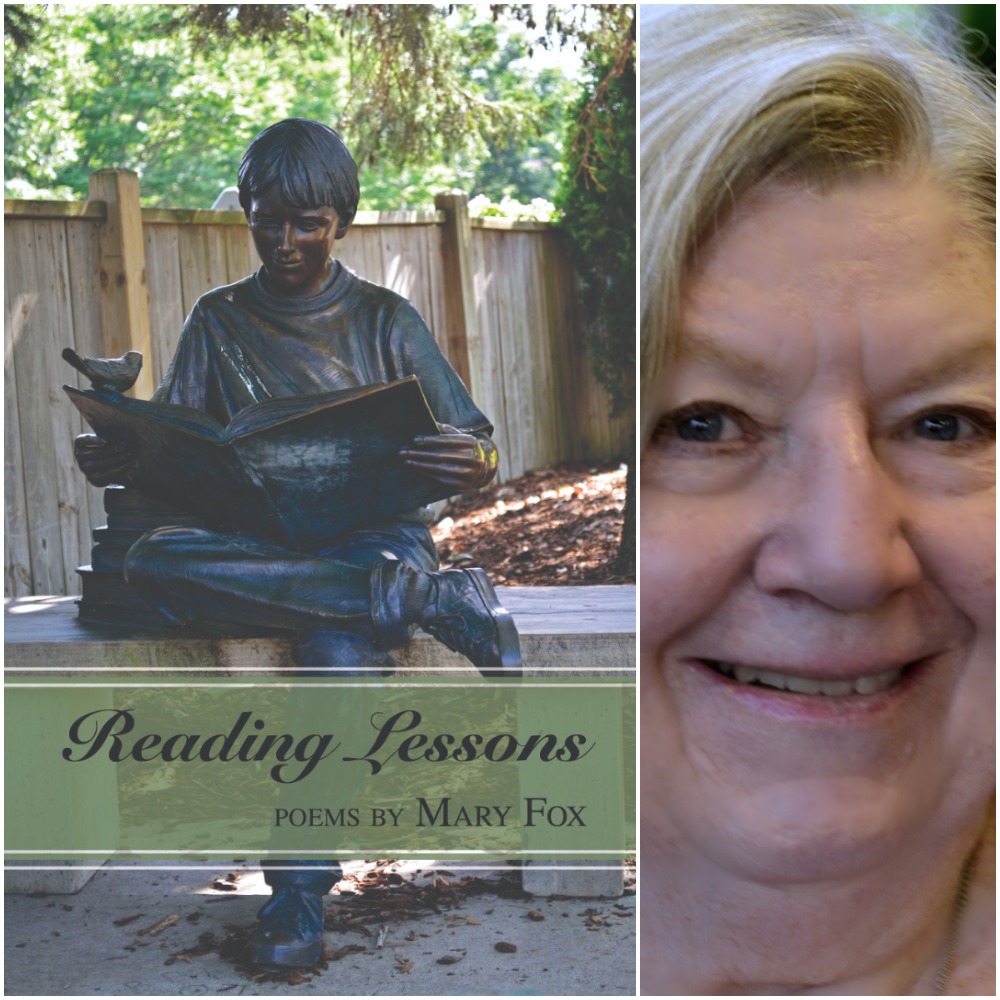Reading Lessons by Mary Fox
$14.99
Reading Lessons by Mary Fox takes us on the universal journey of reading context in every day experiences. Her poetry collection reveals how, from the day we are born, our reading lessons commenced. We read a mother’s touch, a father’s laughter and an uncle’s love engraved in body language—where love letters and divorce decrees are no match for the punctuation of a lover’s caress, where grief is but a reminder that life is abundant in unfinished stories. Fox also asks that we read the signs pointing the way to a meaningful life, those signs prodding us to stop revising other people’s stories and finally focus on finishing our own narrative—to take a bite out of the apple, swallowing the seeds and await what will grow within each of us.
–-Alan Harris, poet and author of Hospice Bed Conversations and Fall Ball, poetry for the late innings.
In Reading Lessons, Mary Fox brings to the page the formerly “unread” and “un-syllabled” in poems that move deftly from family to former lovers to musical scores and palms and lips. They inhabit that space just beyond the eyes and mind where the world and our place in it become clear and clearly vibrant through this writer’s attention. Here, absence, a throbbing in the bones, as she states in one poem, finds its shape in moonlight.
–Dennis Hinrichsen, Greater Lansing Poet Laureate and author of SKIN MUSIC
Description
Reading Lessons
by Mary Fox
$14.99, paper
978-1-63534-992-4
2019
Mary Fox, a Detroit-born poet, currently resides Portland, Mi. She graduated from Michigan State University (BA) and Central Michigan University (MS.). In 2016 she published Waiting for Rain, a poetry chapbook, with Finishing Line Press and in 2018, co-edited Promptly Speaking, the fourth Writing at the Ledges anthology, to publication.






Cheryl Caesar (verified owner) –
Mary Fox’s poems are tough. It says something that the one we demand at readings is titled “Look, Bitch.” In her chapbook Reading Lessons, she gives us clear-eyed, unflinching memories of family and places lived – but shows us the gleam behind the grit. Her mother’s voice in church was a “cringe-worthy mess,” but it taught her to “sing beyond my handicap” to reach “the soul of the music.” Her Proustian recall of Warren, Michigan is a “stink” of factories and racism, so when she waxes lyrical over Reo Town and Lansing’s east side, the romanticism feels earned. “Body Language” never looks away from the pain, drudgery and despair of life in a body and a family, so we rejoice with Mary in later poems at the image of a “child of light and stars,” and stop a moment in wonder at “the shape of you in moonlight.” Everyone has had such a moment. Thanks, Mary, for bringing it back to us.